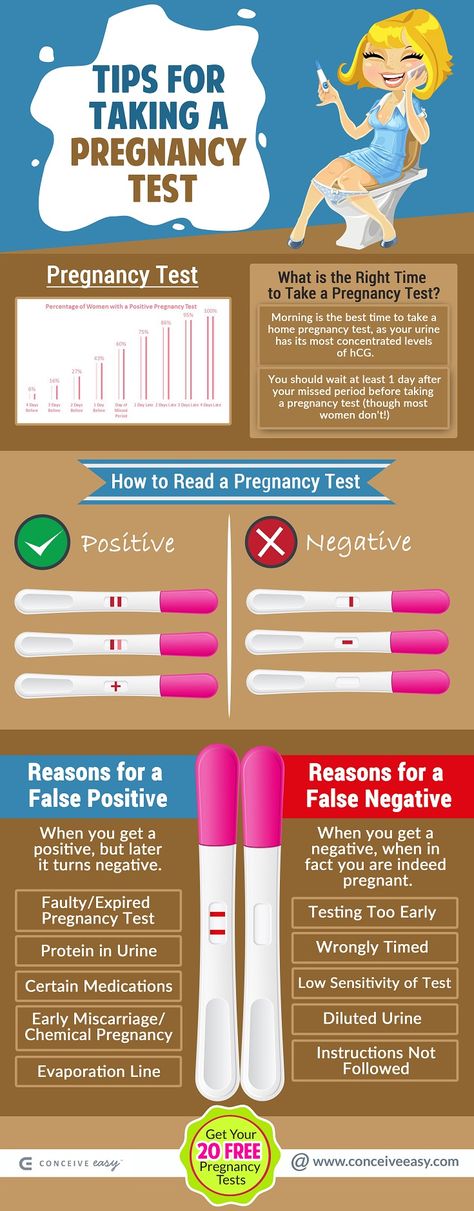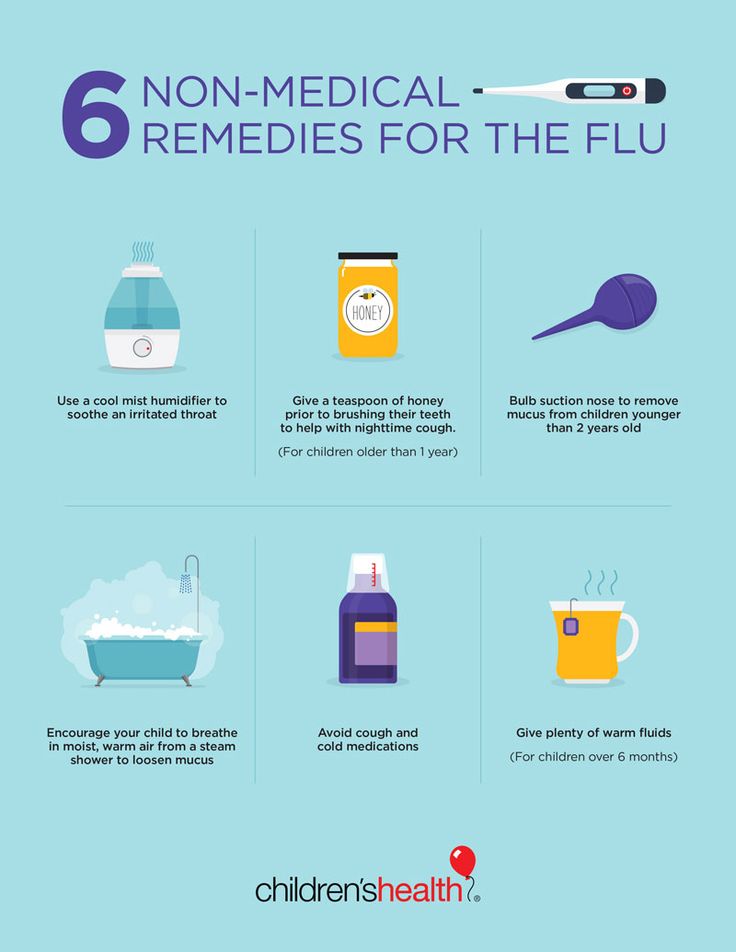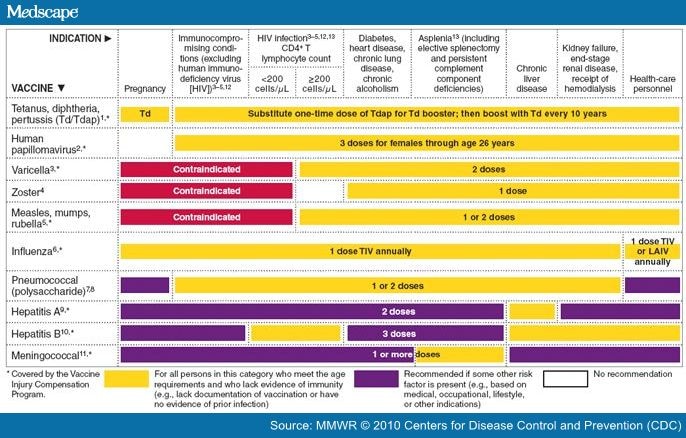Miscarriage pregnancy test positive
How to tell if a miscarriage has happened
If you’ve heard the term miscarriage, you probably know that it means the loss of a pregnancy before 20 weeks’ gestation. Miscarriage is something that no one wants to think about during early pregnancy, but 10-20% of all known pregnancies end in miscarriage. Being able to recognize miscarriage symptoms and knowing what to do next can help you be more prepared in case one happens.
Miscarriage symptoms
A miscarriage can happen suddenly or gradually, which means that you may not notice any particularly early symptoms of a miscarriage. But no matter how fast it happens, key symptoms include:
- Pink, red or brown vaginal bleeding or spotting
- Cramps or pain in the lower abdomen
- Passing tissue or blood clots from the vagina
Every miscarriage is different. The heaviest bleeding and cramps may be over within a few hours, but bleeding could continue off and on for as long as three weeks. And although most people experience cramps, a miscarriage isn’t always painful.
Both vaginal spotting and mild cramps are common during early pregnancy, so it’s possible to have a miscarriage and not know it. This is why you should call your care provider if you experience any of the above symptoms once you’ve confirmed your pregnancy.
When do miscarriages happen?
Most miscarriages happen during the first trimester, which is the first 12 weeks of pregnancy. If you’re not tracking your menstrual cycle or fertility, it’s possible to mistake an early miscarriage for a period. And although miscarriages can still happen after the first trimester, the chances drop significantly – to around 3-4%. It’s also possible to have a pregnancy loss after 20 weeks, but this is referred to as a stillbirth. It’s treated differently and is much less common than a miscarriage.
Will a pregnancy test be negative after a miscarriage?
It takes time for your hormones to return to their pre-pregnancy levels after a miscarriage.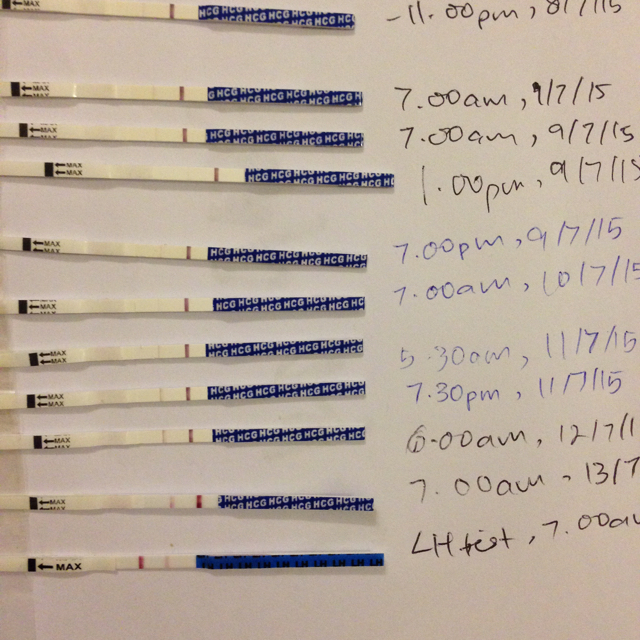 The amount of the pregnancy hormone human chorionic gonadotropin (hCG) may still be high enough to trigger a positive result on a pregnancy test for several weeks after a miscarriage.
The amount of the pregnancy hormone human chorionic gonadotropin (hCG) may still be high enough to trigger a positive result on a pregnancy test for several weeks after a miscarriage.
What causes miscarriages?
One of the most important things to know about miscarriages is that they’re often caused by things that you have no control over, including:
- Chromosomal abnormalities: This is when a fertilized egg has too many or too few chromosomes. Chromosomal abnormalities account for around half of all miscarriages and are usually random. They can either prevent the embryo from developing or from forming in the first place.
- Uterine or cervical issues: In some cases, conditions related to the uterus or cervix can interfere with embryo development and lead to miscarriage. This includes conditions that create growths or scar tissue in the uterus like endometriosis, pelvic inflammatory disease, and cervical insufficiency – which is when the cervix opens too early, typically in the second trimester.

- Infections: Untreated sexually transmitted infections (STIs) can cause you to miscarry. It’s important to get tested for STIs before you get pregnant, as you can have an infection without symptoms. You may also miscarry if you become infected with listeriosis, which is a type of food poisoning. This is why it’s recommended that you avoid eating certain foods during pregnancy.
In addition to the above, there are other factors that can increase your risk of miscarriage and other pregnancy complications. These risk factors include:
- Age: Pregnancy after age 35 comes with a higher risk of miscarriage. This is because as you age, eggs with extra or missing chromosomes become more common.
- Environmental exposure: Working around or otherwise being exposed to radiation, toxins or contaminants.
- Health conditions: Certain health conditions, like autoimmune disorders, thyroid disorders, severe diabetes and being over- or underweight.

- Lifestyle choices: Smoking, drinking alcohol and using drugs.
- Previous miscarriages: Having two or more miscarriages in a row can be a sign that you have a higher chance of miscarrying in general.
What does NOT cause a miscarriage
Physical activity and sex have not been linked to miscarriage. But if you’re ever unsure about whether something is safe to do during your pregnancy, talk to your care provider.
Some studies have shown that stress or high caffeine intake during pregnancy may increase miscarriage risk. More research is needed, but it’s recommended that you try to manage your stress as best you can, and keep your daily caffeine intake below 200 milligrams.
What to do if you have a miscarriage
Again, if you notice potential symptoms of a miscarriage, call your care provider. They will want to confirm the miscarriage and make sure that you aren’t at risk for heavy blood loss or infection. This is usually done with a pelvic exam and an ultrasound.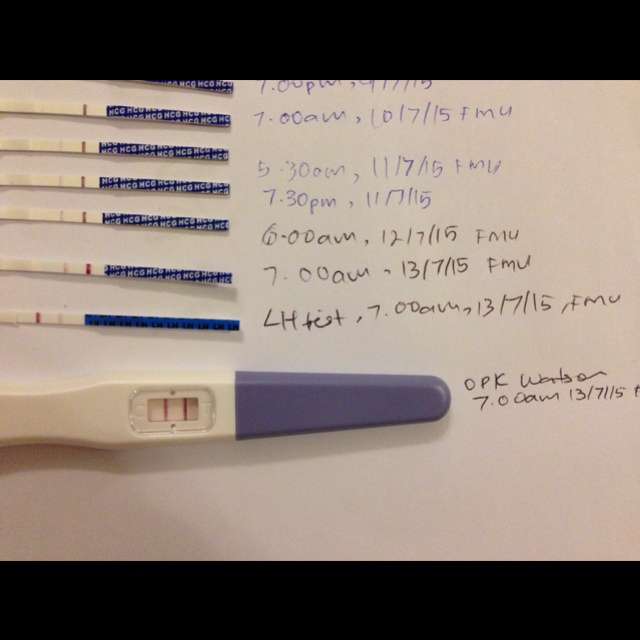
Miscarriages frequently resolve on their own without any need for treatment. It may take a few days to pass all of the tissue, and you may have moderate bleeding that lightens over the course of a couple weeks. Seek immediate medical treatment if you have heavy bleeding that does not lighten, fever, weakness or other signs of infection.
Medical treatment for a miscarriage
There’s no treatment that can stop a miscarriage. Instead, miscarriage treatment focuses on preventing excessive blood loss and infection, which can happen if the uterus isn’t completely cleared of tissue. Once a miscarriage has been confirmed, options for treatment may include:
- Medication: Medication can be used to speed up the passing of pregnancy tissue.
- Surgery: If there’s leftover tissue in the uterus or signs of heavy blood loss or infection, a minor surgery called dilation and curettage (D&C) may be performed. In a D&C, the cervix is dilated so that the remaining tissue can be gently removed.
 This option can also be chosen based on preference.
This option can also be chosen based on preference.
Tips for recovering from a miscarriage
- To prevent infection, avoid putting anything in your vagina during a miscarriage, and for two weeks afterwards. This means avoiding sexual intercourse and using pads instead of tampons.
- If you’re having painful cramps during or after a miscarriage, take acetaminophen – follow the label instructions.
- Your iron levels may drop as a result of the bleeding. To offset this and support your body’s blood production, eat a healthy diet that’s high in iron and vitamin C. Iron can be found in red meat, shellfish, beans and leafy green vegetables. Vitamin C can be found in citrus fruit, kiwis, bell peppers and many other vegetables.
- A miscarriage can be an emotionally difficult time, and there’s no right or wrong way to feel. It’s common to experience a variety of emotions, including mood swings, grief, anger and loneliness. Talk with family, friends or a counselor if you’re feeling overwhelmed or need support after a pregnancy loss.

- Be kind to yourself. The physical and emotional toll of a miscarriage can be draining. It’s okay to take a step back from your regular activities if you need to rest and recuperate.
- Once your miscarriage has been confirmed, go to any recommended follow-up appointments, and report new or worsening symptoms to your care provider as soon as possible.
Can you avoid a miscarriage?
After a miscarriage, it’s normal to wonder if you could have done anything differently. Remember, a miscarriage is rarely anyone’s fault, and there’s no sure way to prevent one from happening. That said, there are a few healthy lifestyle choices you can make to minimize your risk:
- If you smoke, drink alcohol or use drugs, quit as soon as possible.
- Get tested for STIs.
- Talk to a medical professional about any health conditions you haven’t had treatment for.
- Stick to any treatment plans or other methods you’ve already been given for managing health conditions.
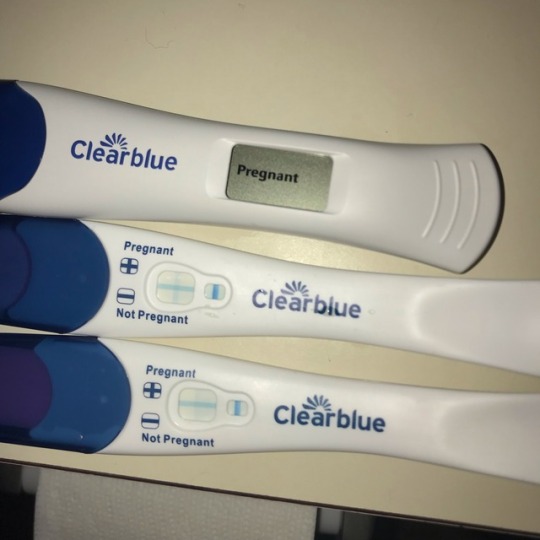
- Get enough physical activity.
- Eat a balanced diet.
Keep your risk low
If you aren’t pregnant yet, one of the best things you can do to minimize your risk of miscarriage and other complications is to make a preconception appointment. This is an opportunity for your care provider to review your medical and lifestyle histories, and make recommendations that can give your pregnancy the healthiest possible start.
And if you’re already pregnant, stick to your prenatal appointment schedule. Your prenatal appointments ensure that you and your little one are getting all the care you need. Plus, these appointments give your care team the chance to catch signs and symptoms of complications before they affect your pregnancy.
Make a preconception appointment or a prenatal appointment.
Pregnancy Tests After Miscarriage - How Long Until It’s Negative?
When a pregnancy ends suddenly, like in the case of miscarriage, it can take some time for your hormones to return to normal and recalibrate. The hormone measured by pregnancy tests, hCG (human chorionic gonadotropin) is only made in high levels while you’re pregnant and these levels usually rise in a predictable way.
The hormone measured by pregnancy tests, hCG (human chorionic gonadotropin) is only made in high levels while you’re pregnant and these levels usually rise in a predictable way.
But what happens when a pregnancy ends? In this article, we’ll be taking a closer look at the ins and outs of pregnancy tests after miscarriage. We’ll take a look at what hCG levels can look like, how long it can take until they are negative, and trying to conceive again. We’ll also cover some of the most frequently asked questions about taking pregnancy tests after miscarriage and what to expect to be ready for another pregnancy.
hCG levels after miscarriage
Testing for the presence of hCG in urine is one of the primary ways we determine if an individual is pregnant. Although you may find trace amounts in your system at other times, hCG is really only produced in high levels when you’re pregnant and peaks around the 8th to 11th week of pregnancy. When you miscarry, your body will halt the production of hCG and levels will gradually return to their pre-pregnancy baseline.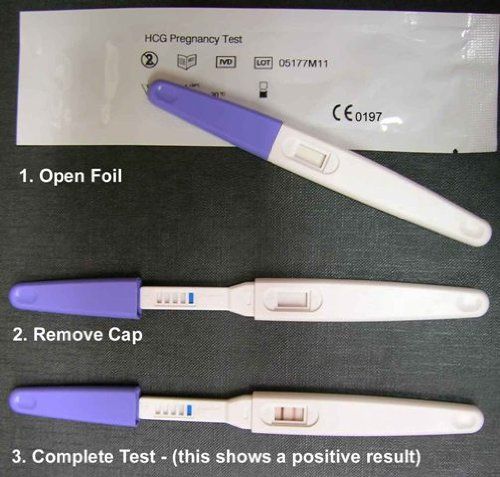
While there is a range of what is considered “normal”, hCG levels can vary depending on the individual and the stage of pregnancy. Accordingly, how long hCG stays in your system will depend on how far along you were in your pregnancy as well as other lifestyle factors. The exact levels to expect will depend on how high hCG levels were immediately prior to the loss. If hCG remains elevated, this could be a sign that something more serious is going on (like in the rare case of a molar pregnancy) and should be investigated by your doctor.
How long will a pregnancy test be positive after a miscarriage?
How long it takes for your hCG level to gradually return to normal will depend on how far along you were in your pregnancy and what kind of pregnancy you had. Levels may persist even after miscarriage but will generally start to fall and return to their baseline or pre-pregnancy levels, which can take up to 6 weeks. If your pregnancy ended very early you will likely have low levels of hCG whereas if your pregnancy was further along you will have more in your bloodstream.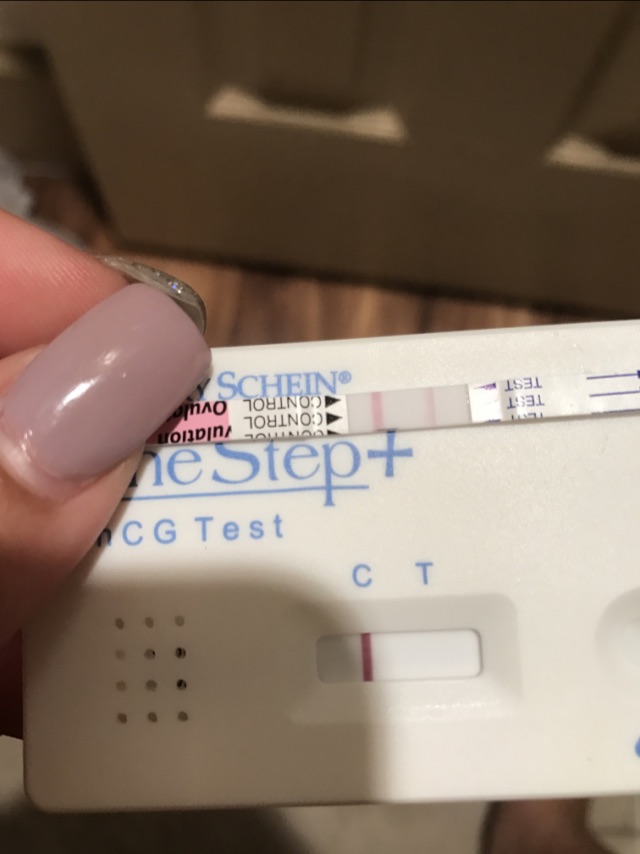
Early miscarriage
An early pregnancy loss, or one that occurs shortly after implantation, means your hCG levels were lower and will likely return to baseline in less time. Even though levels of the hormone were being produced at a rate high enough to be detected on a pregnancy test, they will fall rapidly without successful implantation. It may only take days for your hCG levels to return to normal after early miscarriage.
Miscarriage later in pregnancy
Your hCG levels double every 2-3 days at the beginning of a pregnancy and peak around week 10. A miscarriage that occurs later in pregnancy means you will have more hCG in your blood and levels may naturally take longer to return to a pre-pregnancy baseline.
Trying to get pregnant again
Traditionally, many doctors recommend waiting several months before trying to conceive again after a miscarriage. Although there is no medical evidence to wait this long, each situation is different and will depend on multiple factors including your personal medical history.
How long should you wait?
Miscarriage can take both a physical and emotional toll and it’s important to wait until your mind and body are both fully ready. Physically, once hCG is back to its pre-pregnancy levels and ovulation has resumed, your body is able to get pregnant again. Although recent research has debunked the need for an extended wait, it’s important to allow your body to heal and for your pregnancy hormones to normalize.
Why should you wait?
Allowing your body to heal is an important reason to wait before getting pregnant again.
Aside from giving you time to emotionally process the events, it gives your body a chance to return to optimal conditions to support a new pregnancy.
Allowing body to return to pre-pregnancy state
It can take time for your body to recalibrate and return to its pre-pregnancy state. As your hormones regulate, your menstrual cycle will gradually return to a normal pattern and you can track your cycle for ideal timing.
Avoiding false positives pregnancies
It can take weeks or months for your hormones to return to normal after a pregnancy loss. Because pregnancy tests detect hCG in urine, your test results may be inaccurate if your hormones haven’t fully returned to baseline.
If there is still hCG in your system from the previous pregnancy, you could get a “false positive” and think you’re pregnant when you’re not. Not waiting long enough before trying again can make it harder in the long run by making testing inaccurate and possibly complicating your care (more on your fertility after a miscarriage here).
FAQs about pregnancy tests after miscarriage
Have questions about pregnancy tests after miscarriage? We’ve answered some of the most frequently asked questions for you.
Do hCG levels need to drop to 0 before trying to conceive again?
hCG can remain in your bloodstream for weeks after a miscarriage and how long it takes for levels to drop to 0 will vary from woman to woman.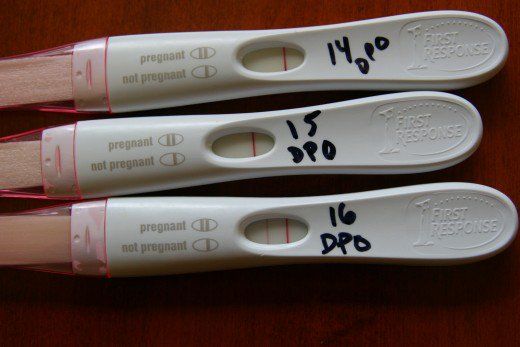 Women used to be advised to wait at least three months before getting pregnant again, but experts now agree that there is no reason to delay pregnancy after you have experienced an early pregnancy loss. Ask your doctor how long you should wait in your situation since recommendations will depend on multiple factors unique to your health.
Women used to be advised to wait at least three months before getting pregnant again, but experts now agree that there is no reason to delay pregnancy after you have experienced an early pregnancy loss. Ask your doctor how long you should wait in your situation since recommendations will depend on multiple factors unique to your health.
Can I take a pregnancy test to see if I miscarried?
Because hCG can remain in your bloodstream for weeks following a pregnancy loss, it is not recommended to use a pregnancy test to see if you miscarried. You may still get a false-positive test reading from the hCG in your system.
If you have a pregnancy test show a negative result after previously receiving a positive one, it can be a sign of a chemical pregnancy or early miscarriage. However, it’s best to not rely on a home pregnancy test for this kind of information and instead see a doctor.
Can you ovulate with hCG in your system after a miscarriage?
HCG naturally suppresses ovulation by ensuring the corpus luteum continues to produce progesterone throughout the first trimester of pregnancy.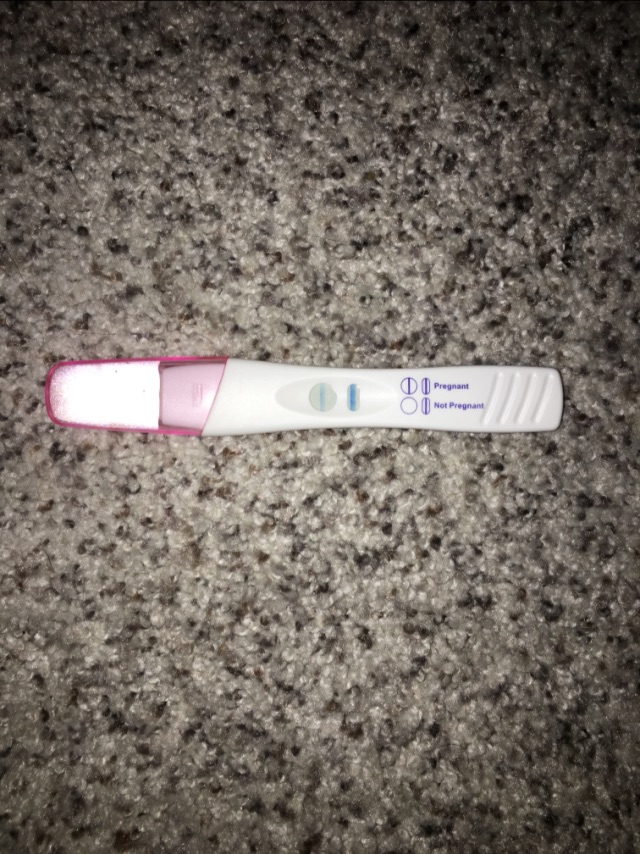 With hCG in your system, it will suppress your normal ovulation process and as your hormones regulate, your cycle will eventually return.
With hCG in your system, it will suppress your normal ovulation process and as your hormones regulate, your cycle will eventually return.
How do you confirm a miscarriage?
Your doctor will perform a few different tests to figure out exactly what is going on and if you have experienced a miscarriage. These may include a blood test to check hormone levels, a pelvic exam, ultrasound, or pregnancy test among others.
5 Causes of a False Positive Pregnancy Test
If a woman is trying to conceive or suspects pregnancy, a pregnancy test, available from pharmacies or personal care stores, can help confirm these suspicions. Although many home pregnancy tests are 99% accurate, they are not perfect. A false positive result of a pregnancy test is one that indicates the presence of pregnancy in its absence. nine0003
Pregnancy tests detect the presence of human chorionic gonadotropin (hCG) in the urine, a pregnancy hormone that is excreted in the urine and in the blood during pregnancy.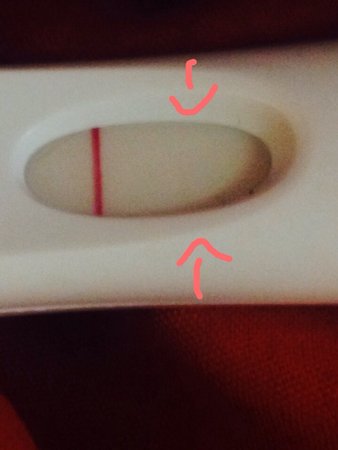 It is important to note that when taking a pregnancy test, a woman should know that even a weak plus sign or a second line indicates a positive result.
It is important to note that when taking a pregnancy test, a woman should know that even a weak plus sign or a second line indicates a positive result.
However, not all positive pregnancy tests mean that a woman is pregnant. There are some cases where a pregnancy test can give a false positive result:
Incorrect use of the test. When performing a home pregnancy test, it is important to follow the instructions carefully. Each brand has specific instructions, so it's important to read them carefully. For most tests, the result should be evaluated within 4-5 minutes after the test and no more than 10-30 minutes after that. If the pregnancy test is read after the recommended time, this may cause a weak second line to appear on the test - as a rule, this line appears after the urine has evaporated. nine0003
Previous miscarriage or abortion. After an abortion or miscarriage, a home pregnancy test may result in a false positive because the hCG levels in the woman's body may still be relatively high. As soon as a fertilized egg implants in the uterine wall, the body begins to secrete the hCG hormone. After a miscarriage or abortion, hCG levels begin to drop, but this happens slowly. As a rule, hCG decreases over a period of 9 to 35 days. The average time interval is about 19days. Taking a pregnancy test during this period may result in a false positive result.
As soon as a fertilized egg implants in the uterine wall, the body begins to secrete the hCG hormone. After a miscarriage or abortion, hCG levels begin to drop, but this happens slowly. As a rule, hCG decreases over a period of 9 to 35 days. The average time interval is about 19days. Taking a pregnancy test during this period may result in a false positive result.
In some cases, a miscarriage may not occur completely, as a result, tissue remains in the uterus that provokes the release of hCG. In this situation, surgery may be required to remove any retained products of conception.
Molar pregnancy. It is caused by genetic abnormalities at conception and leads to abnormal pregnancy. In a complete molar pregnancy, the embryo does not develop, but the placental tissue grows rapidly. Typically, this happens because the woman's eggs lack the maternal chromosome, and the egg is fertilized by one or two sperm. In a partial molar pregnancy, the egg is fertilized by 2 spermatozoa.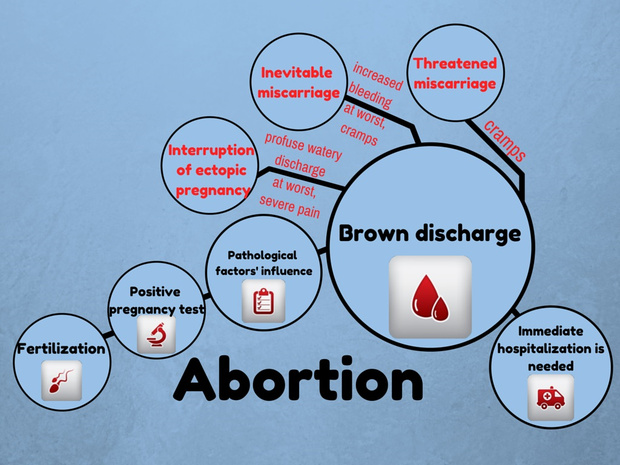 This results in an embryo containing 1 set of chromosomes from the mother and 2 sets of chromosomes from the father - 69chromosomes instead of the normal set of 46 chromosomes.
This results in an embryo containing 1 set of chromosomes from the mother and 2 sets of chromosomes from the father - 69chromosomes instead of the normal set of 46 chromosomes.
Instead of a normal placenta and embryo, placental tissue in molar pregnancy develops in a way that resembles a bunch of grapes. To eliminate such a pregnancy, an operation is required with careful monitoring of the level of hCG in a woman after the intervention. Sometimes a condition called persistent gestational trophoblastic disease can occur, which is associated with the continued growth of molar pregnancy products in the uterus. In this situation, surgery is required to remove the uterus or chemotherapy. nine0003
Medicines. Certain medications may cause a false positive pregnancy test result. These medicines include preparations with hCG as the active ingredient, which are often used to treat infertility. Yet most medications do not affect the results of home pregnancy tests.
Pathologies. Certain diseases and conditions can cause a woman's hCG levels to rise even if she is not pregnant. They include:
- disorders affecting pituitary hormone levels, especially in perimenopausal or menopausal women;
- gestational trophoblastic disease;
- cancer of the ovary, bladder, kidney, liver, lung, colon, breast and stomach;
- phantom hCG, when certain body proteins bind to molecules in a pregnancy test kit, resulting in a false positive result;
- ovarian cysts;
- kidney disease or urinary tract infection. nine0034
If a pregnancy test indicates a positive result, it is important to notify your physician as further evaluation and testing will be required to confirm and monitor pregnancy.
Based on www.medicalnewstoday.com
An obstetrician-gynecologist at the SM-Clinic Reproductive Health Center spoke about the possibility of not noticing a miscarriage
Unfortunately, the loss of a child at an early stage of pregnancy is quite common.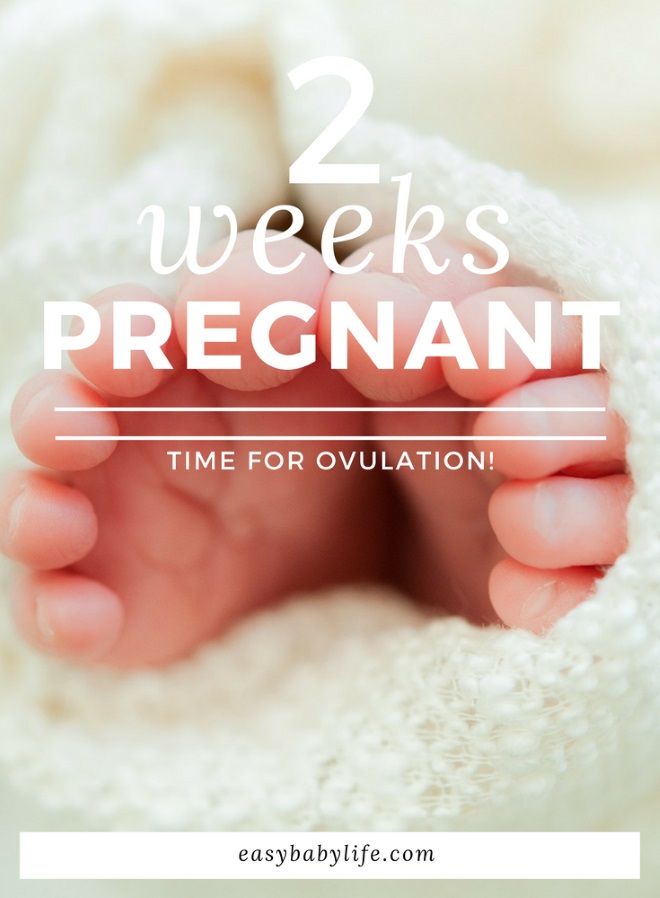 After the first miscarriage, a woman lives in constant fear and is afraid that the second attempt to become a mother will turn into a tragedy. nine0003
After the first miscarriage, a woman lives in constant fear and is afraid that the second attempt to become a mother will turn into a tragedy. nine0003
“A miscarriage is the spontaneous termination of a pregnancy before the fetus reaches a viable term. A fetus weighing up to 500 g is considered viable, which corresponds to a period of less than 22 weeks of pregnancy. Many women face this diagnosis. About 80 percent of miscarriages occur before 12 weeks of pregnancy."
Causes of miscarriage
Approximately half of early miscarriages occur due to genetic pathologies in the development of the fetus, that is, from defects in the number and composition of chromosomes. It is in the first weeks that the formation of the baby's organs begins, which requires 23 normal chromosomes from each of the future parents. When at least one abnormal changes occur, there is a risk of losing a child. nine0003
At 8-11 weeks the rate of these miscarriages is 41-50%, at 16-19 weeks the rate of miscarriages due to chromosomal defects drops to 10-20%.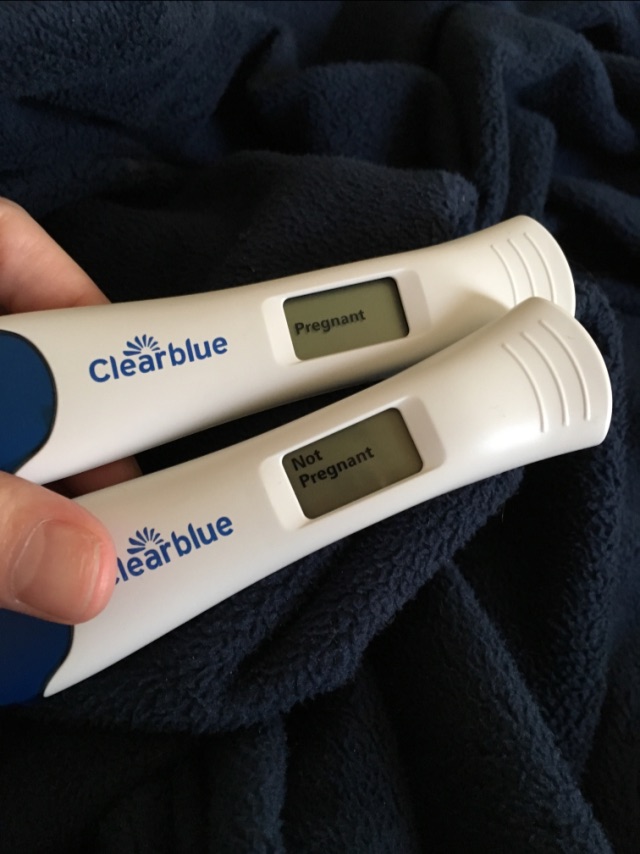
There are other causes of miscarriage. Among them:
- Congenital and acquired disorders of the anatomy of the genital organs If there are fibroids, polyps in the uterus, this can cause abnormal development of the embryo. The threat of miscarriage may be in women with an abnormal development of the uterus. nine0033 Infectious causes Numerous studies have shown that the risk of miscarriage increases in the presence of sexually transmitted infections. Dangerous for a pregnant woman are measles, rubella, cytomegalovirus, as well as diseases that occur with an increase in body temperature. Intoxication of the body often leads to the loss of a child.
- Endocrine causes Problems with gestation occur with diabetes, thyroid diseases, disorders of the adrenal glands. nine0033 Unfavorable ecology, exposure
- Blood clotting disorder (thrombosis, antiphospholipid syndrome) APS (antiphospholipid syndrome) is a disease in which the human body produces a lot of antibodies to phospholipids, the chemical structures that make up parts of cells.
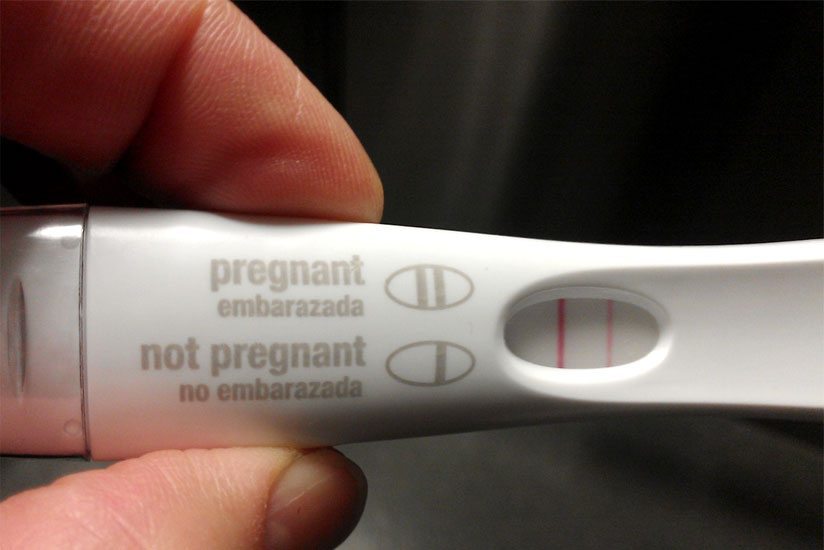 The body mistakenly perceives its own phospholipids as foreign and begins to defend itself against them: it produces antibodies to them that damage blood components. Blood clotting increases, microthrombi appear in small vessels that feed the fetal egg and placenta. Blood circulation in the fetal egg is disturbed. As a result, the pregnancy stops or the growth of the fetus slows down. Both of these lead to miscarriage. All this is due to the hormonal background that has changed during pregnancy. nine0033 Lifestyle and bad habits Nicotine addiction, alcohol use, obesity.
The body mistakenly perceives its own phospholipids as foreign and begins to defend itself against them: it produces antibodies to them that damage blood components. Blood clotting increases, microthrombi appear in small vessels that feed the fetal egg and placenta. Blood circulation in the fetal egg is disturbed. As a result, the pregnancy stops or the growth of the fetus slows down. Both of these lead to miscarriage. All this is due to the hormonal background that has changed during pregnancy. nine0033 Lifestyle and bad habits Nicotine addiction, alcohol use, obesity. Is it possible not to notice a miscarriage
Sometimes women mistake a miscarriage for normal menstruation. This occurs during the so-called biochemical pregnancy, when there is a violation of the implantation of the embryo at a very early stage and menstruation begins. But before the appearance of spotting, the test will show two strips.
The classic variant is when a miscarriage is manifested by bleeding against the background of a long delay in menstruation, which rarely stops on its own. Therefore, even if a woman does not follow the menstrual cycle, the signs of an interrupted pregnancy will be immediately noticed by the doctor during examination and ultrasound. nine0061
Therefore, even if a woman does not follow the menstrual cycle, the signs of an interrupted pregnancy will be immediately noticed by the doctor during examination and ultrasound. nine0061
Alarm
The symptoms of a miscarriage can be completely different, and depending on them, as a rule, it is possible to predict the likelihood of maintaining and successfully continuing this pregnancy.
For the threat of miscarriage is characterized by pulling pains in the lower abdomen and lumbar region, scanty bloody discharge from the genital tract. Ultrasound signs: the tone of the uterus is increased, the cervix is not shortened and closed, the body of the uterus corresponds to the gestational age, the fetal heartbeat is recorded. nine0003
Started miscarriage - pain and discharge from the genital tract are more pronounced, the cervix is ajar.
Miscarriage in progress - cramping pains in the lower abdomen, copious bloody discharge from the genital tract. On examination, as a rule, the uterus does not correspond to the gestational age, the cervix is open, the elements of the fetal egg are in the cervix or in the vagina.
On examination, as a rule, the uterus does not correspond to the gestational age, the cervix is open, the elements of the fetal egg are in the cervix or in the vagina.
Incomplete miscarriage - the pregnancy was interrupted, but there are delayed elements of the fetal egg in the uterine cavity. This is manifested by ongoing bleeding due to the lack of a full contraction of the uterus. nine0003
Non-progressive pregnancy - the death of an embryo (up to 9 weeks) or a fetus up to 22 weeks of gestation in the absence of any signs of termination of pregnancy.
Important!
Severe abdominal pain and spotting at any stage of pregnancy is a reason for an urgent appeal to an obstetrician-gynecologist with a solution to the issue of hospitalization in a gynecological hospital.
Is it possible to avoid miscarriage
“Today, there are no methods for preventing miscarriages,” the doctor says. “Therefore, it is very important to comprehensively prepare for pregnancy before it occurs by visiting an obstetrician-gynecologist and following all the necessary recommendations for examination and taking the necessary drugs.”
“Therefore, it is very important to comprehensively prepare for pregnancy before it occurs by visiting an obstetrician-gynecologist and following all the necessary recommendations for examination and taking the necessary drugs.”
But if, nevertheless, the pregnancy could not be maintained, then the birth of a child can be planned again no earlier than 3-6 months after the miscarriage. This time is needed to figure out, together with the attending physician, what are the causes of miscarriage and whether it is possible to avoid them in the future. nine0003
By the way, a common misconception for both women and men is that only the woman is to blame for the loss of pregnancy, but this is far from being the case.
“A man is also responsible, which is why future dads are required to perform a study - a spermogram and be screened for genital infections, since with a pathology of spermatozoa, the likelihood of miscarriage due to genetic abnormalities increases many times,” emphasizes our expert.